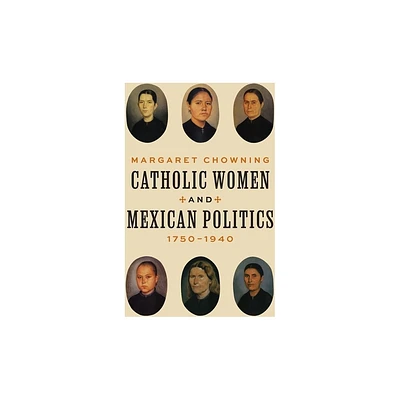Home
Rituals and Sisterhoods: Single Women's Households Mexico, 1560-1750
Loading Inventory...
Barnes and Noble
Rituals and Sisterhoods: Single Women's Households Mexico, 1560-1750
Current price: $37.95


Barnes and Noble
Rituals and Sisterhoods: Single Women's Households Mexico, 1560-1750
Current price: $37.95
Loading Inventory...
Size: Paperback
*Product Information may vary - to confirm product availability, pricing, and additional information please contact Barnes and Noble
Rituals and Sisterhoods
reveals the previously under-studied world of plebeian single women and single-female-headed households in colonial Mexican urban centers. Focusing on the lower echelons of society, Amos Megged considers why some commoner women remained single and established their own female-headed households, examining their unique discourses and self-representations from various angles. Megged analyzes these women’s life stories recorded during the Spanish Inquisition, as well as wills and bequests, petitions, parish records, and private letters that describein their own wordshow they exercised agency in male-dominated and religious spaces. Translations of select documents and accompanying analysis illustrate the conditions in which women dissolved their marriages, remained in long-lasting extramarital cohabitations, and formed female-led households and “sisterhoods” of their own. Megged provides evidence that single women in colonial Mexico played a far more active and central role in economic systems, social organizations, cults, and political activism than has been previously thought, creating spaces for themselves in which they could initiate and maintain autonomy and values distinct from those of elite society. The institutionalization of female-headed households in mid-colonial Mexico had wide-ranging repercussions and effects on general societal values.
details the particular relevance of these changes to the history of emotions, sexuality, gender concepts, perceptions of marriage, life choices, and views of honor and shame in colonial society. This book will be of significant interest to students and scholars of colonial Latin American history, the history of Early Modern Spain and Europe, and gender and women’s studies.
reveals the previously under-studied world of plebeian single women and single-female-headed households in colonial Mexican urban centers. Focusing on the lower echelons of society, Amos Megged considers why some commoner women remained single and established their own female-headed households, examining their unique discourses and self-representations from various angles. Megged analyzes these women’s life stories recorded during the Spanish Inquisition, as well as wills and bequests, petitions, parish records, and private letters that describein their own wordshow they exercised agency in male-dominated and religious spaces. Translations of select documents and accompanying analysis illustrate the conditions in which women dissolved their marriages, remained in long-lasting extramarital cohabitations, and formed female-led households and “sisterhoods” of their own. Megged provides evidence that single women in colonial Mexico played a far more active and central role in economic systems, social organizations, cults, and political activism than has been previously thought, creating spaces for themselves in which they could initiate and maintain autonomy and values distinct from those of elite society. The institutionalization of female-headed households in mid-colonial Mexico had wide-ranging repercussions and effects on general societal values.
details the particular relevance of these changes to the history of emotions, sexuality, gender concepts, perceptions of marriage, life choices, and views of honor and shame in colonial society. This book will be of significant interest to students and scholars of colonial Latin American history, the history of Early Modern Spain and Europe, and gender and women’s studies.


















